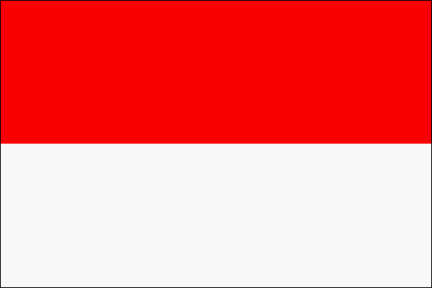|
|
|
Indonesia In Profile 
Indonesia is the fourth most populous nation in the world and, until the summer of
1997, had one of the
world's fastest growing economies (a yearly average growth of 7.5% for the previous ten
years). Since
then, however, the nation has been wracked by economic crises and turmoil that has seen
the value of
Indonesia's currency lose 70 percent of its foreign-exchange value and make imports
prohibitively
expensive. Rising unemployment and food shortages have led to public demonstrations and
riots. The
government has responded forcefully with the police and army to break up the crowds and
maintain
stability. Economic rescue packages funded by the International Monetary Fund and the
World Bank
have had only a marginal effect in reversing the collapse.
The size and location of Indonesia make it a major actor in Asian diplomacy and politics,
and for this
reason the United States maintains a strong bilateral relationship with Indonesia and has
been the
lead sponsor of the recent international economic assistance. However, Indonesia is an
undemocratic
country, with a poor human rights record. In addition, Indonesia invaded and illegally
annexed East
Timor in 1975. For these reasons, many citizens and members of Congress have opposed the
United
States’ role as a leading source of weapons and military training as well as millions
of dollars in
economic aid during the current crisis for the Jakarta regime.
According to the State Department’s 1996 human rights report, "Despite a surface
adherence to
democratic forms, the Indonesian political system remains strongly authoritarian. The
Government is
dominated by an elite comprising President Suharto, his close associates, and the
military." While
there was an overall decrease in human rights incidents, the State Department noted that
security
forces continued to employ "harsh measures" in East Timor and Irian Jaya in
1996. These included
extrajudicial killings, detention, torture, and obstruction of non-governmental and
Catholic Church
investigations into human rights violations. Click here to see the 1997 human rights
report on
Indonesia. Click here to read a critique of the report by the East Timor Action Network.
The primary objective of the 450,000-member armed forces (which includes 175,000 police)
is to
maintain "internal unity and stability." The military wields significant power
throughout Indonesian
politics and society. Efforts to change this reality or reform other aspects of the
government triggered
harsh reactions in 1996, which "further infringed on fundamental rights." A case
in point was the
forcible takeover last July of the opposition Indonesian Democratic Party headquarters.
This action,
and the ensuing riots sparked by it, resulted in five dead, 149 injured, and 23 missing,
according to
the National Human Rights Commission.
Not surprisingly, since the main opposition party was barred from running, President
Suharto’s party
won an overwhelming majority in parliamentary elections in May. The month prior to the
election was
marked by many riots by the banned political opposition. The government crackdown that
followed
resulted in the death of about 300 people.
It is expected that the parliament will re-elect General Suharto to a seventh five-year
term. In an
uncharacteristically critical statement after the election, the State Department spokesman
said, "The
electoral system severely limits political competition; Indonesian citizens do not have
the ability to
change their government through democratic means." Click here for a news chronology
on Indonesia’s
May 1997 election.
Indonesia invaded East Timor in 1975, illegally annexing it the following year. Amnesty
International
and other human rights groups have estimated that more than 100,000 Timorese out of a
population
of only 700,000 were killed in the first five years. Since 1980 another 100,000 are
thought to have
been killed or to have died of hunger and disease.
In November 1991, using U.S.-supplied M-16 assault rifles, the Indonesian army opened fire
on
peaceful Timorese demonstrators. The soldiers killed 50-150 demonstrators who were
proceeding to
a cemetery in Dili, the capitol of Timor, in a memorial for a man previously killed by the
military.
The 1996 Nobel Peace Prize was awarded to Carlos Filipe Ximenes Belo, East Timor's Roman
Catholic Bishop, and to Jose Ramos-Horta, who has long advocated a referendum by the
Timorese
public on the question of independence. Click here to read a 23 July 1997 Washinton Times
op-ed by
Ramos-Horta supporting the U.S. and international Code of Conduct on Arms Transfers.
Not all protest against Indonesian rule is peaceful. In the wake of the May 1997
elections, separatist
rebels bombed a police truck with grenades killing 17 officers during one of the worst
outbreaks of
violence in years in the disputed territory. At least 41 people were killed in rebel
attacks.
Historically, the United States has been a leading supporter of the Indonesian military.
In 1992, because of the massacre in Dili in the preceding November, the Congress cut off
further
military training for Indonesia. Responding to Congressional and citizen pressure, in 1994
the U.S.
State Department banned the sale to Indonesia of small arms, riot gear, and other
"crowd control"
technologies which could be used to commit human rights abuses. But U.S. policy still
permits the sale
of larger, more expensive weapons, such as F-16 fighter/bomber jets. The administration
claims that
F-16s are not likely to be used to commit human rights abuses, and during 1996-97 it
advocated the
sale of nine of the aircraft to Indonesia. On 6 June of this year, citing criticism from
the U.S. Congress,
Indonesia canceled its order for the jets.